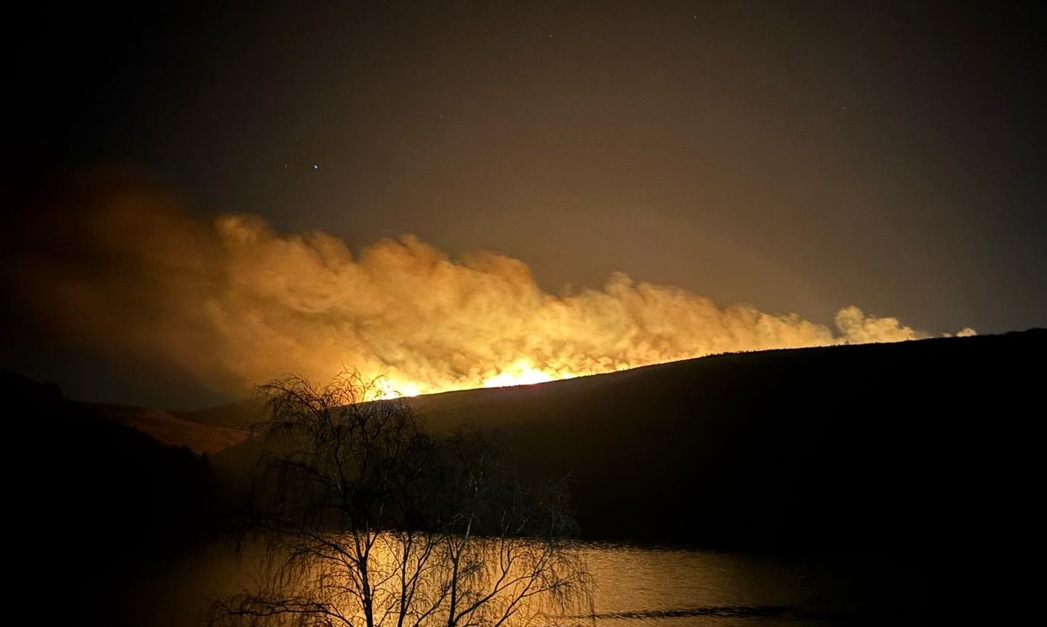
The sheep sector is calling for urgent talks on upland management, warning that reduced grazing may be raising wildfire risks across the UK.
Fire crews have already responded to over 400 wildfires in 2025, with blazes reported in locations ranging from Scotland’s Stac Pollaidh to the Pennines.
There have also been wildfires reported in the Cornish nature reserves and the Mourne Mountains in Northern Ireland.
The National Sheep Association (NSA) says many of these fires are occurring in upland areas, where land management strategies - including the reduction of grazing animals - may be contributing to increased fuel loads.
"Arson, camping accidents and general carelessness of the public are often the causes of wildfires," says NSA policy manager, Michael Priestley.
"But the fuel load is being increased by land management policies including the trend of stopping controlled burns and destocking of uplands.
“The spate of wildfires shows how challenging it is to get the balance of lower stocking rates and rewilding of uplands correct."
He added that sheep grazing plays a critical role in managing vegetation, reducing the build-up of dry grasses that can fuel wildfires.
Areas such as Ralfland Common near Shap, where fire crews recently tackled a blaze, have been widely destocked, potentially exacerbating the fire risk.
"If the aim is to preserve the landscape, the only options are cutting, burning and grazing, and if this is done by gamekeepers and farmers it is work that is done as part of economic activities.
"However, if the aim is to rewild and rewet, the landscape, this takes time," Mr Priestley explains.
The call comes amid reports from the Met Office that March 2025 was the driest on record in some regions.
South West England received just 4% of its average rainfall, while England as a whole saw only 22%, significantly raising fire risk.
The NSA warns that without reconsidering the role of grazing in land management, the ecological damage from wildfires could continue to escalate.
This could, in turn, put rural communities, rare wildlife, and traditional upland farming skills at risk.
